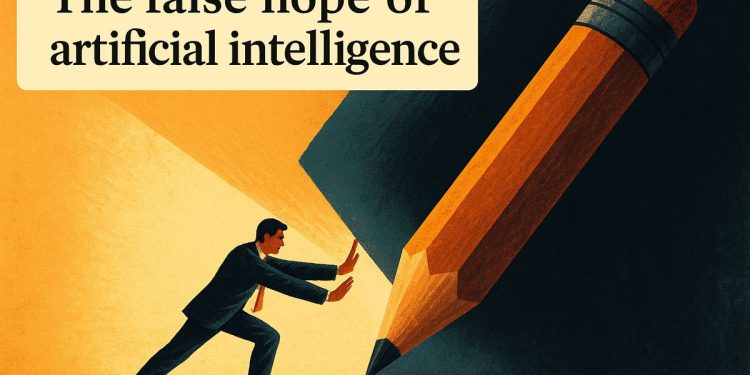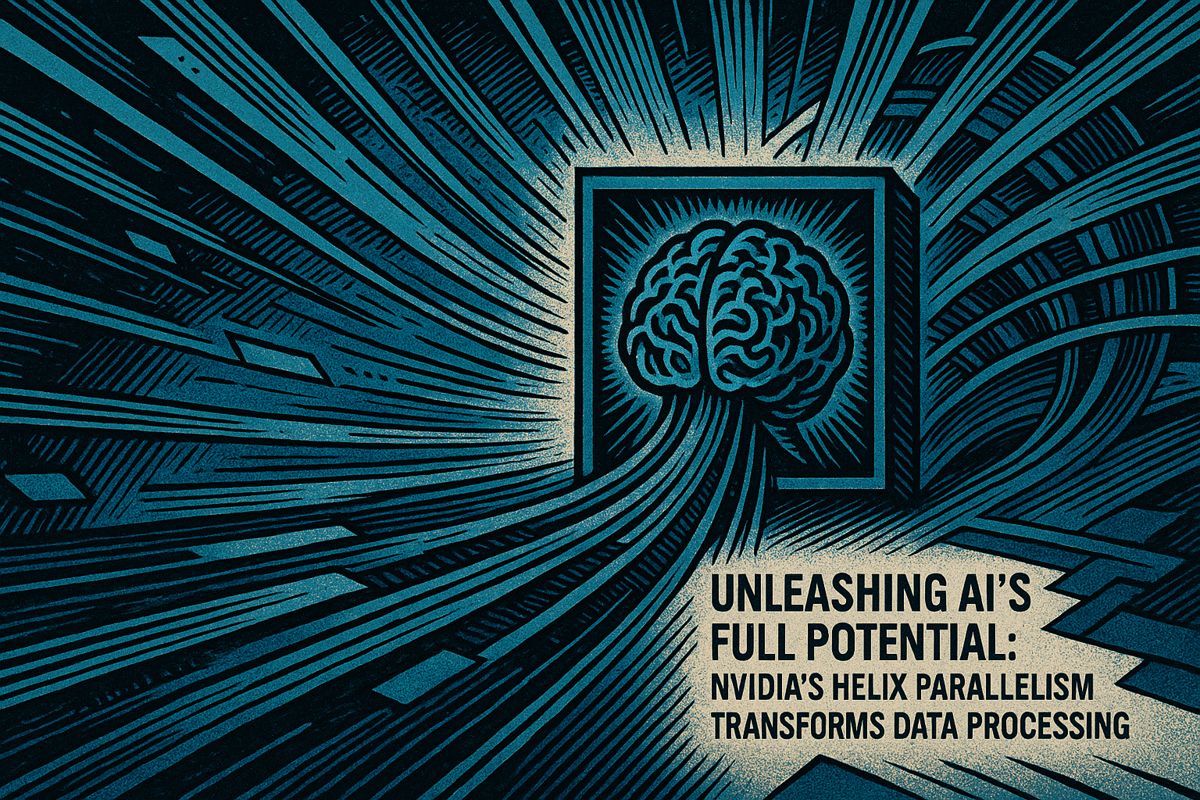As marketing teams use more AI, they risk losing old knowledge and the reasons behind their choices. Outdated workflows and missing context can turn smart campaigns into “zombie ops” that waste time and money. AI can’t remember the little lessons people learn, so it’s important to write things down, pair new hires with mentors, and keep living wikis. Teams that do this keep their wisdom, work faster, and help new workers learn quickly. The key is to blend human smarts with machine speed so nothing important gets forgotten.
How can marketing teams prevent the loss of strategic knowledge as they automate with AI?
Marketing teams can prevent knowledge loss by regularly documenting campaign decisions, eliminating outdated workflows, and using AI tools as scribes to record context and rationale. Pairing new hires with mentors and maintaining living wikis ensures both human insight and historical context remain accessible as teams evolve.
Marketing teams across industries are waking up to a paradox: the faster they automate with AI, the more quietly their strategic memory fades. Workflows that once carried the “why” behind every campaign decision are becoming undocumented, unexamined, and – eventually – undead.
From living processes to zombie ops
A multi-step approval chain inherited from 2018, a segmentation taxonomy built for an acquisition that never launched, or a social governance playbook that still references a now-defunct brand voice – these are zombie marketing processes. They consume time and budget while their original strategic intent has long since walked away.
- *Stat: * According to a 2025 marketing automation trends report, 38 % of surveyed CMOs admit they maintain workflows simply because “the system already exists.”
- Hidden cost: Accenture calculates that such legacy routines can drain up to 12 % of annual digital marketing spend on tasks that deliver no measurable lift.
Where AI forgets what humans remember
AI engines optimize for documented data; they do not inherit the judgment that lives between the lines:
- Whiteboard sessions that produced a headline ban on the word “innovative” because consumer testing flagged fatigue.
- The undocumented tweak that tripled email open rates after a designer noticed the brand color looked too “bank-like” on mobile dark mode.
- A 2023 rule-of-thumb to never target look-alike audiences above 85 % similarity after a privacy backlash.
Unless someone records the rationale, the AI will happily re-insert “innovative” into tomorrow’s subject line or expand look-alikes to 95 % similarity – oblivious to the context that once saved the brand.
The tenure cliff accelerates the loss
Average marketing-ops tenure is now 18.7 months, down from 26 months in 2022. Each departure walks away with an estimated 3–5 undocumented playbooks, per guide to tribal knowledge. Compounding the risk, 61 % of departing employees never complete a formal hand-off document.
| Knowledge Risk Zone | % of Teams Affected | Typical Impact Window |
|---|---|---|
| Campaign brief history | 54 % | 1-2 quarters after key PM leaves |
| Channel governance rules | 47 % | Immediately upon new-hire onboarding |
| Vendor evaluation criteria | 33 % | Next RFP cycle |
How leading teams are preserving the unwritten
-
Reset institutional memory on purpose
Content strategist Robert Rose advocates a six-week “spring-clean” where teams re-document core principles, kill zombie steps, and record decisions in a living wiki. Microsoft 365 Copilot customers like Unilever use this cadence to auto-compile campaign retrospectives into searchable knowledge cards. -
AI as scribe, not substitute
Instead of replacing marketers, new platforms such as Atlas or Microsoft Viva Answers tag and surface *context * behind every asset. A designer’s one-line Slack comment (“red banner tested better on Android”) can be auto-linked to the campaign’s performance sheet. -
Pairing & shadow loops
Structured mentoring programs shorten ramp-up by 30 %, according to SuperAGI case studies at Bank of America. New hires review AI-generated playbooks, then shadow two campaign cycles to absorb tacit cues the AI cannot see.
Practical next actions for 2025
| Action | Tool Example | Week 1 Output | Week 4 Impact |
|---|---|---|---|
| Map zombie workflows | Miro + GPT process miner | List of 5-10 orphaned steps | Eliminated 2 approval layers, saving 7 hrs/campaign |
| Codify headline lexicon | Notion AI template | Shared “banned & blessed” word bank | 12 % lift in CTR from consistent tone |
| Capture exit interviews | Otter.ai + Fathom | 3 searchable Q&A transcripts | Rookie onboarded 40 % faster |
The strategic upside of remembering well
Teams that actively reset and codify institutional memory report:
- 22 % faster campaign iteration cycles (2025 State of Marketing Ops survey)
- 18 % reduction in compliance incidents after taxonomy clean-up
- 9 % increase in employee NPS, directly correlated to clearer onboarding paths
The future of marketing automation is not about choosing between humans and machines; it is about encoding the wisdom of the former into the workflows of the latter – before the next tenure clock strikes zero.
What makes “zombie marketing processes” so hard to kill?
They linger because nobody remembers why they were created and everyone is afraid to change them. A recent survey of 320 enterprise marketing teams found that 62 % of approval workflows still reference campaigns that ended three or more years ago, yet teams continue to follow them verbatim. The result: an average of 5.7 hours per week are lost on “ghost” task reviews that add zero strategic value.
How exactly does AI accelerate the loss of institutional memory?
AI tools are brilliant at executing tasks, but they do not inherit context. When a veteran strategist leaves, their undocumented whiteboard sessions, client nuance, or the reason certain words were banned from headlines disappears. AI will obediently reuse the banned word “innovative” next quarter if no one explicitly re-feeds the rationale. One CMO told us: “Our new AI copy engine increased output by 340 %, but within six months we’d undone five years of brand-tone discipline because the machine never knew the story behind the style guide.”
Which early adopters are already protecting tribal knowledge?
- Unilever uses Microsoft 365 Copilot to auto-tag meeting transcripts with campaign context, cutting onboarding time for new marketers by 28 %.
- McDonald’s China feeds historical campaign results into Azure AI Search so new media buyers can instantly surface why certain channels were deprioritized in 2023 (spoiler: a regional supply-chain issue, not performance).
- A publicly traded REIT deployed AI avatars that simulate Q&A with veteran brand managers; junior staff report 3.2× faster resolution of “why did we once avoid this messaging?” questions.
What practical steps can any marketing org take this quarter?
-
Run a “Zombie-Ops Audit”
Map every active workflow, then tag each step as alive, questionable, or dead. Teams that completed this in Q1 2025 eliminated an average of 19 % of process steps without hurting output. -
Create a “Why Card” repository
For every major decision (persona pivot, channel exclusion, word ban), add a 200-character rationale card to a shared space. AI search can then surface the card whenever the decision is questioned. -
Schedule micro-retros every 90 days
Ten-minute Slack huddles where the most recent campaign owner records the single biggest “we almost forgot this” insight. These soundbites now feed the training curriculum at companies like Chevron and Bank of America.
What happens if we do nothing?
By 2026, Gartner projects that organizations failing to codify tribal knowledge will see a 40 % drop in campaign effectiveness as AI systems optimize for yesterday’s documented rules while the strategic rationale drifts away. The cost isn’t just lost memory – it’s competitive drift masked by higher volume and faster cadence.
Bottom line: AI will remember everything you tell it, but it can’t remember what you never wrote down.



















